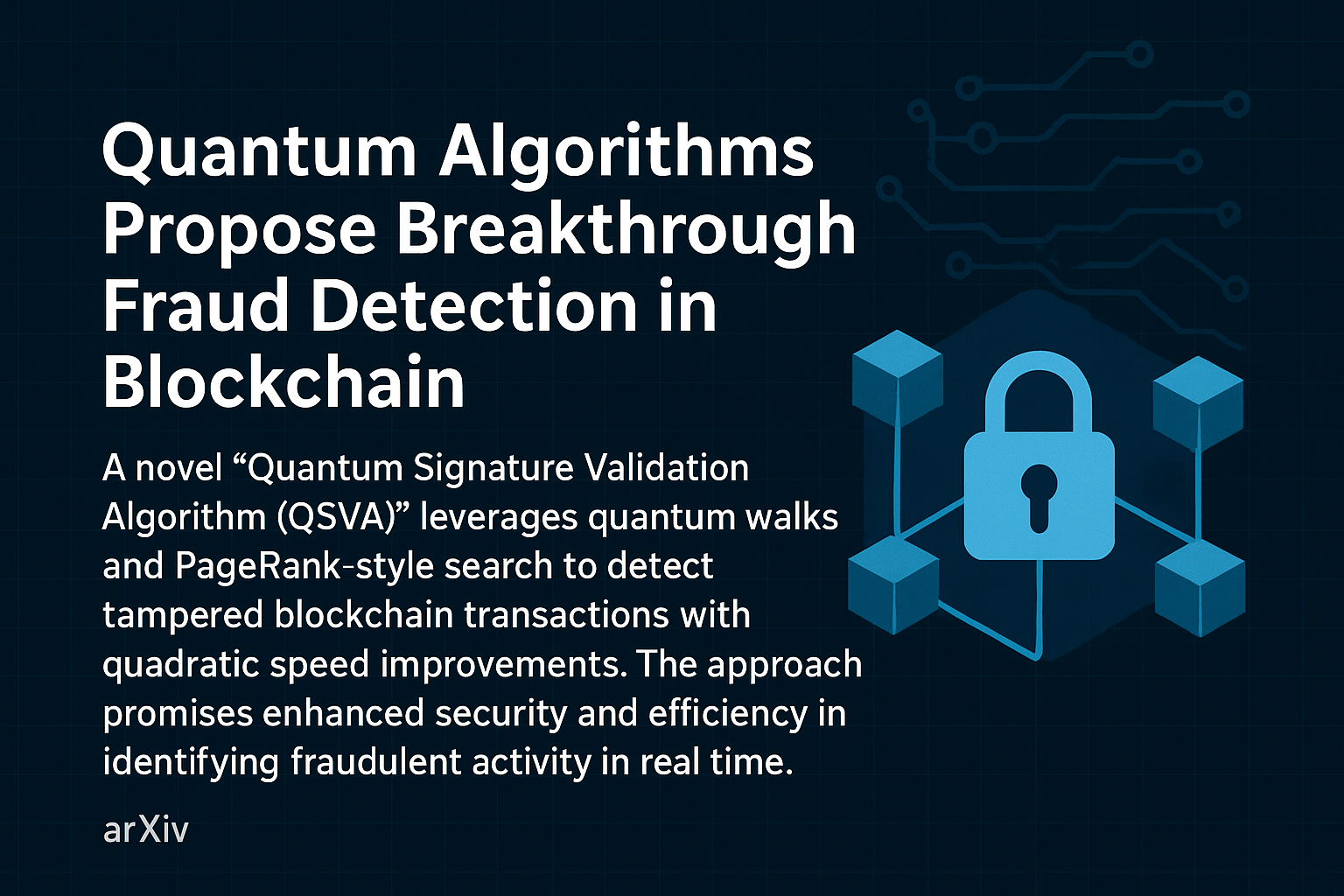As quantum computing advances, its potential to disrupt traditional cryptographic methods is becoming a pressing concern for financial institutions. HSBC, a global banking leader, is taking proactive measures by exploring quantum-secure technologies to future-proof its systems. With a reputation for innovation in asset tokenization, including offering tokenized physical gold via blockchain, HSBC is setting new benchmarks in secure, forward-thinking financial services.
Quantum Computing and Cybersecurity: A Growing Concern
Quantum computing, while promising revolutionary advancements in computation, also poses significant risks to conventional cybersecurity. Current encryption methods, such as RSA and ECC, could be rendered obsolete by the computational power of quantum machines.
Why Quantum Security Matters for Financial Systems
- Data Breaches: Quantum computers could decrypt sensitive financial data, exposing customer information.
- Blockchain Vulnerabilities: Quantum attacks may compromise the integrity of blockchain networks, threatening tokenized assets.
- Regulatory Compliance: Future-proofing against quantum threats ensures compliance with emerging global cybersecurity standards.
HSBC’s initiative to adopt quantum-secure solutions reflects the industry’s growing recognition of these challenges.
HSBC’s Pioneering Efforts in Tokenized Assets
HSBC has been at the forefront of financial innovation, particularly in the realm of tokenized assets. By leveraging distributed ledger technology (DLT), the bank has introduced groundbreaking solutions for institutional investors.
Tokenized Physical Gold: A Game-Changer
One of HSBC’s most notable initiatives is its tokenized physical gold offering. This solution provides institutional investors with:
- Enhanced Transparency: Blockchain ensures traceability and authenticity of gold ownership.
- Increased Liquidity: Fractional ownership allows easier trading and investment in gold.
- Cost Efficiency: Eliminates intermediaries, reducing transaction costs.
Expanding Tokenization Use Cases
In addition to gold, HSBC is exploring tokenization across other asset classes, including:
- Real estate
- Fixed-income securities
- Private equity
These innovations demonstrate HSBC’s commitment to modernizing asset management and catering to the evolving needs of institutional investors.
How Quantum Technology Complements Tokenization
Quantum technology and blockchain may seem like disparate domains, but they are intrinsically linked in the context of secure digital finance. HSBC’s focus on quantum-secure systems aims to ensure that tokenized assets remain safe from emerging cyber threats.
Quantum-Safe Cryptography
HSBC is exploring encryption algorithms resistant to quantum decryption, such as:
- Lattice-Based Cryptography: Hard problems in lattice structures make it quantum-resistant.
- Hash-Based Signatures: Relies on cryptographic hash functions, secure against quantum attacks.
Strengthening Blockchain Integrity
By integrating quantum-resistant protocols, HSBC aims to enhance:
- Transaction Security: Preventing tampering or theft of tokenized assets.
- Network Resilience: Ensuring distributed ledgers remain immutable and reliable.
The Future of Quantum Technology in Finance
While quantum computing is still in its developmental stages, its influence on finance is inevitable. Institutions like HSBC are positioning themselves at the cutting edge, reimagining how digital assets are secured and managed.
Potential Applications
- Accelerated Transaction Processing: Quantum computers could optimize blockchain operations, improving scalability.
- Advanced Risk Modelling: Enhanced computation could lead to more accurate financial forecasting.
- Fraud Detection: Quantum algorithms could improve anomaly detection, reducing fraud risks.
Collaborative Efforts
HSBC is working alongside technology partners, regulators, and academic institutions to develop industry standards for quantum security.
Challenges and Considerations
Despite its promise, integrating quantum-secure technology into financial systems comes with challenges:
- High Costs: Developing and deploying quantum-resistant systems requires significant investment.
- Interoperability Issues: Ensuring compatibility with existing blockchain platforms can be complex.
- Uncertainty in Quantum Timelines: The pace of quantum advancements is unpredictable, complicating risk assessments.
HSBC’s Vision for the Future
HSBC’s commitment to quantum technology and tokenized assets reflects its broader vision of a secure, efficient, and innovative financial ecosystem. By combining blockchain and quantum-resistant technologies, the bank aims to:
- Enhance customer trust through robust cybersecurity.
- Lead the industry in asset tokenization and digital innovation.
- Foster collaboration to set global standards for quantum security.
Frequently Asked Questions
What is HSBC doing with quantum technology?
HSBC is exploring quantum-secure technologies to protect its systems and tokenized assets from future quantum-based cyber threats.
What are tokenized assets?
Tokenized assets are real-world assets, such as gold or real estate, represented as digital tokens on a blockchain, allowing for fractional ownership and easier trading.
How does quantum computing impact cybersecurity?
Quantum computers could break current cryptographic methods, making sensitive data and blockchain systems vulnerable to cyberattacks.
What is tokenized physical gold?
HSBC’s tokenized physical gold offering uses blockchain to enable institutional investors to buy, sell, and trade fractional ownership of physical gold securely and efficiently.
Why is quantum security important for blockchain?
Quantum security ensures that blockchain networks remain tamper-proof and resistant to quantum-based attacks, safeguarding digital assets.
What are the challenges of adopting quantum technology?
Key challenges include high costs, technical complexity, and the uncertainty of quantum advancements.
HSBC’s exploration of quantum technology and its pioneering role in tokenized assets highlight the bank’s commitment to innovation and security in the digital age. As quantum computing evolves, proactive measures like adopting quantum-resistant cryptography and enhancing blockchain resilience will be critical for safeguarding the financial ecosystem. By addressing emerging cyber threats and expanding tokenization, HSBC is not only future-proofing its systems but also shaping the future of digital finance.




